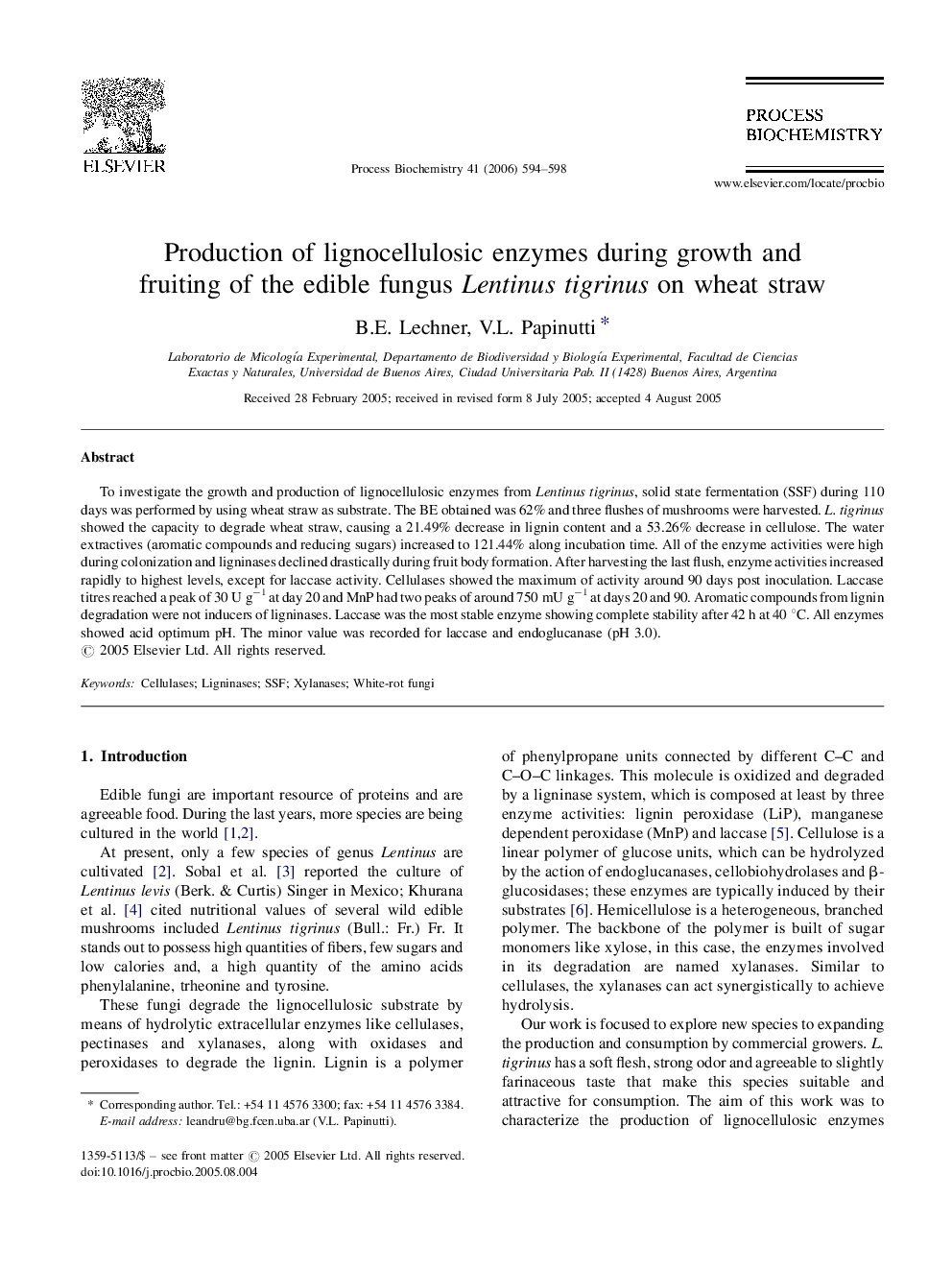| Article ID | Journal | Published Year | Pages | File Type |
|---|---|---|---|---|
| 36380 | Process Biochemistry | 2006 | 5 Pages |
To investigate the growth and production of lignocellulosic enzymes from Lentinus tigrinus, solid state fermentation (SSF) during 110 days was performed by using wheat straw as substrate. The BE obtained was 62% and three flushes of mushrooms were harvested. L. tigrinus showed the capacity to degrade wheat straw, causing a 21.49% decrease in lignin content and a 53.26% decrease in cellulose. The water extractives (aromatic compounds and reducing sugars) increased to 121.44% along incubation time. All of the enzyme activities were high during colonization and ligninases declined drastically during fruit body formation. After harvesting the last flush, enzyme activities increased rapidly to highest levels, except for laccase activity. Cellulases showed the maximum of activity around 90 days post inoculation. Laccase titres reached a peak of 30 U g−1 at day 20 and MnP had two peaks of around 750 mU g−1 at days 20 and 90. Aromatic compounds from lignin degradation were not inducers of ligninases. Laccase was the most stable enzyme showing complete stability after 42 h at 40 °C. All enzymes showed acid optimum pH. The minor value was recorded for laccase and endoglucanase (pH 3.0).
